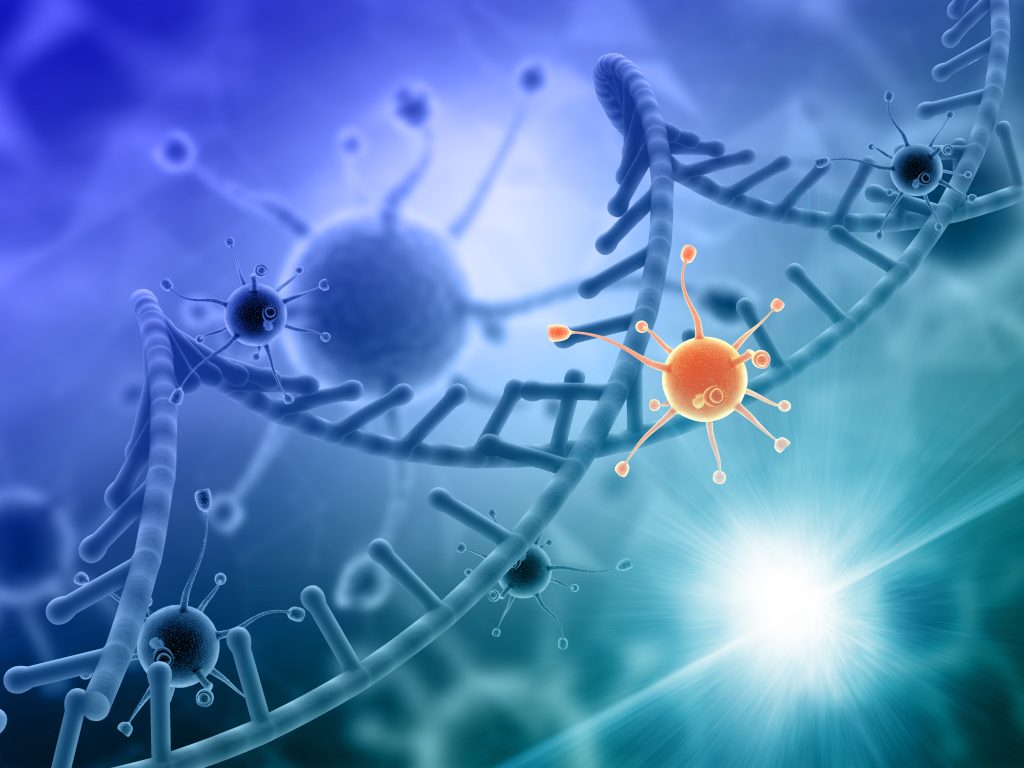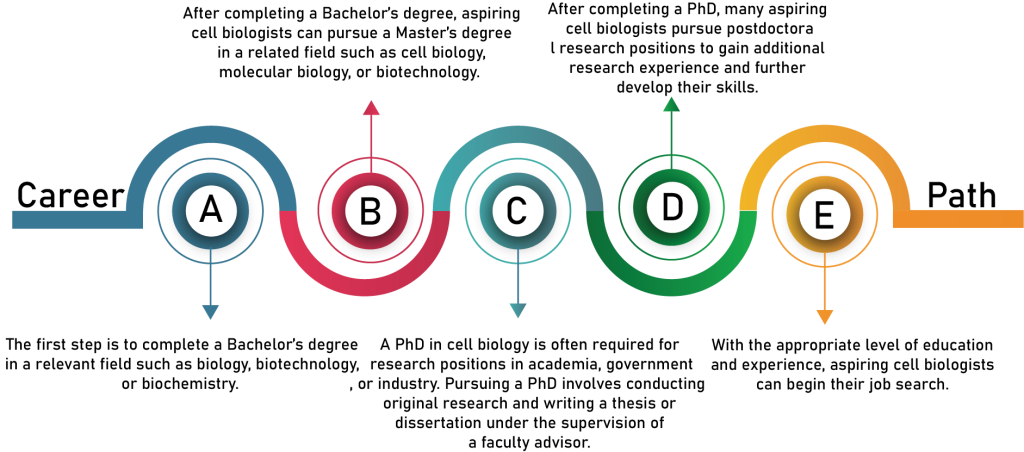Cell biology is a branch of science that studies the structure, function, and behavior of cells, which are the basic units of life. This field is a crucial part of many scientific disciplines, including molecular biology, genetics, and biochemistry. Cell biologists work to uncover the fundamental mechanisms that govern cell behavior and use this knowledge to develop new therapies and treatments for diseases. Pursuing a career in cell biology in India can be a rewarding and intellectually stimulating path.

Work description
Cell biologists study the structure and function of cells at the molecular level, conducting research to understand how cells function and communicate with one another. Their work involves conducting experiments, analyzing data, and presenting their findings to the scientific community. Cell biologists work in a range of settings, including academic research institutions, pharmaceutical companies, and biotech firms.
High Demand
Opportunities to contribute to advancements in healthcare and biomedical research.
Lucrative salaries
Intellectual stimulation and the opportunity to continually learn and develop new skills.
Opportunities for innovation
The potential for a stable and secure career, with a growing demand for skilled professionals in the field.
Versatility
Opportunities to work in a range of settings, including academia, industry, and government research institutions.
Flexibility
Possibility of making significant contributions to society and the greater good.
High stress
Long hours in the lab, which can lead to work-life balance challenges.
Long hours
Intense competition for funding and job opportunities.
Competitive field
Limited job prospects in some regions, particularly outside of major urban centers.
Constant learning
Research can be unpredictable and results may not always yield the desired outcomes.
Isolation
Requires a significant investment in education and training, including a Master’s or PhD degree.
The cost of pursuing a career in cell biology can vary depending on a number of factors, including the level of education and the type of institution one attends.
Generally speaking, pursuing a Bachelor’s degree in a relevant field in India can cost around Rs. 1-2 lakhs per year, while a Master’s degree program can cost between Rs. 2-4 lakhs per year.
Pursuing a PhD in cell biology can be more expensive, with costs ranging from Rs. 5-10 lakhs per year or more. Additionally, aspiring cell biologists may need to invest in equipment, laboratory supplies, and other resources as they progress in their careers.
[wpcharts type=”horizontalbarchart” bgcolor=”red:gray:yellow,blue:gray:yellow,random:gray:yellow,purple:gray:yellow” min=”0″ legend=”true” titles=”2 year , 5 year” values=”3,7,5,12″]
The earning potential of a career in cell biology in India can vary depending on the level of education, work experience, and the type of employer.
Generally, entry-level positions in cell biology can offer salaries ranging from Rs. 3-4 lakhs per annum, while experienced professionals can earn upwards of Rs. 10 lakhs per annum or more.
Those who work in academic or research institutions may have lower salaries compared to those who work in the private sector, such as biotech or pharmaceutical companies. However, salaries can increase significantly with more experience, expertise, and a proven track record of research success.
[wpcharts type=”horizontalbarchart” bgcolor=”red:gray:yellow,blue:gray:yellow,random:gray:yellow,purple:gray:yellow” min=”0″ legend=”false” titles=”Entry-Level, Mid-Career, Senior-Level ” values=”5,15,25,35,45,55″]
Strong foundation in biology, chemistry, and physics
Analytical and critical thinking skills
Attention to detail
Curiosity and a passion for scientific discovery
Ability to work independently and as part of a team
Effective communication skills, both written and verbal
Comfortable with laboratory techniques and equipment
Difficulty with abstract thinking and conceptualization
Inability to work collaboratively with others
Lack of attention to detail or disregard for safety protocols in the laboratory
Difficulty with organization and record-keeping
Lack of interest or motivation in scientific research and discovery
Weaknesses in foundational sciences such as biology, chemistry, and physics
Inability to handle the pressure of fast-paced research environments
Work-life balance
The work-life balance of someone pursuing a career in cell biology can vary depending on their specific job, work setting, and individual preferences.
However, in general, cell biology research can be a demanding and time-consuming field that requires a significant commitment of time and energy. Some aspects of a career in cell biology that could affect work-life balance specifically are laboratory work and collaborative work.
Many cell biology researchers spend a significant amount of time in the laboratory, conducting experiments, analyzing data, and maintaining equipment.
Cell biology research often involves working with other scientists, both within and outside of one’s own institution. This can require coordinating schedules and meetings, which may take place outside of regular working hours.

Cell biology research has led to many breakthroughs in medical research and treatment, including new therapies for cancer, genetic disorders, and other diseases.
Cell biology research has contributed to our understanding of fundamental processes such as cell division, gene expression, and signaling pathways.
Cell biology research has driven the development of new technologies such as gene editing tools, high-throughput sequencing, and advanced imaging techniques.
The field of cell biology creates a significant number of jobs.
The development of new therapies, technologies, and products in the field of cell biology can drive economic growth and innovation.
Advances in cell biology research can improve the health and well-being of individuals around the world.
Artificial Intelligence Machine Learning
Involves developing algorithms that enable machines to learn from data and make decisions without human intervention.
Cyber security
Focuses on protecting computer systems, networks, and sensitive data from unauthorized access, attacks, and theft.
Software Engineering
Involves designing, developing, and maintaining software applications and systems.
Data Science Machine Learning
Involves processing, analyzing, and interpreting large and complex data sets using statistical and computational methods.
Computer Networks
Focuses on designing, implementing, and maintaining computer networks that enable communication and data transfer between devices.
Conclusion:
In conclusion, pursuing a career in cell biology in India can be a challenging and rewarding path for those with a strong interest in the life sciences. With a range of academic and industry opportunities available, aspiring cell biologists can find fulfilling careers in this field while making a meaningful impact on human health and well-being.



